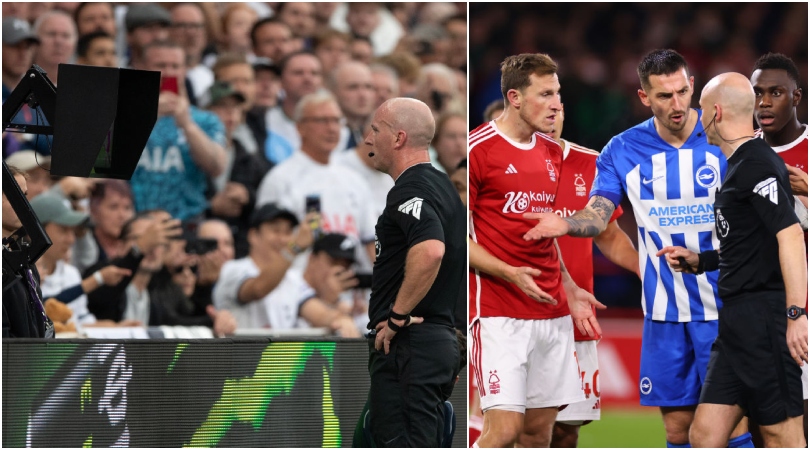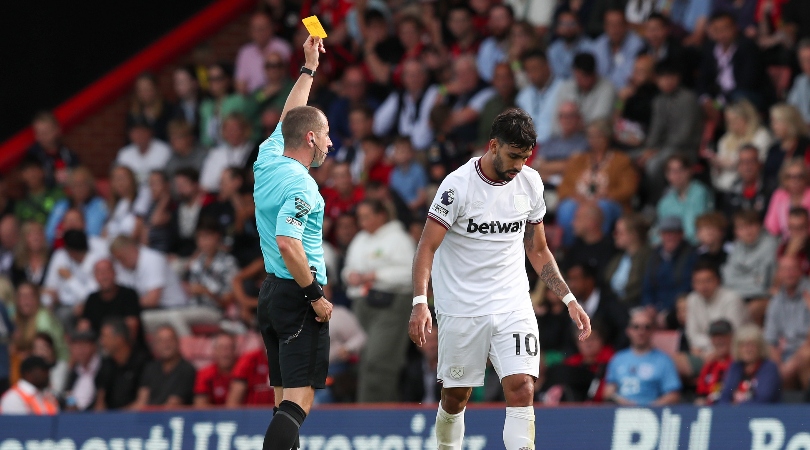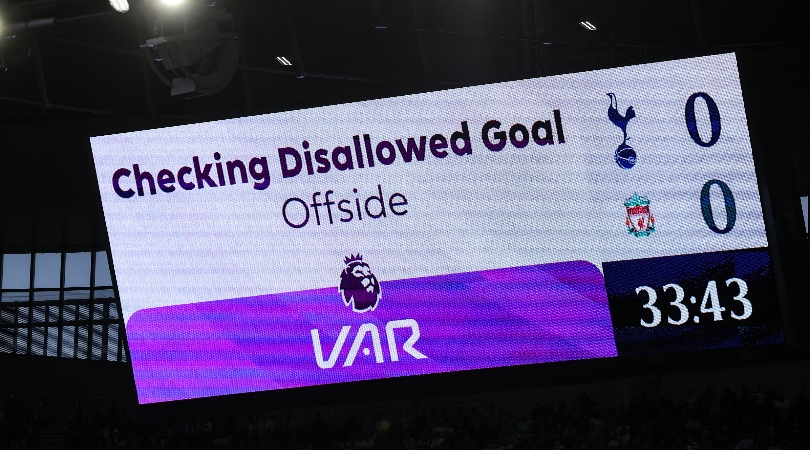VAR, sin bins and protecting referees: Every major law change discussed at IFAB meeting
VAR could soon have greater responsibilities, if IFAB's proposed law changes are approved in March

The International Football Association Board (IFAB) discussed a range of issues surrounding the laws of the game at a meeting on Tuesday, with a view to implementing them full-time in football in the UK.
Focussing on how officials use VAR, implementing sin bins for cynical fouls and how to best protect referees in the game, IFAB proposed changes to the laws of the game, which will now undergo a trial period as the game's law-making body looks to "identify which levels are best to test".
Testing of the proposed changes will then be subject to approval at IFAB's annual general meeting on March 2, 2024. But what was discussed? FFT takes a closer look.
Law changes discussed at IFAB meeting

As part of an effort to increase respect for officials, a proposed trial where only the captain of a team is allowed to approach the referee has been given the green light. This is part of an attempt to improve behaviour from players, which in turn leads to officials suffering less abuse.
Players falling foul of that law change could subsequently receive a sin bin, whereby their dissent is punished by leaving the pitch for ten minutes. But that's not the only thing sin bins are being introduced for.
Specific tactical offences, or cynical fouls, will also receive a sin bin after IFAB indicated yellow cards weren't a harsh enough punishment, but red cards went too far.
"I think [there is] frustration for fans watching games when they see a promising counter-attack that's ruined by that [a tactical foul]," FA CEO Mark Bullingham said.
The best features, fun and footballing quizzes, straight to your inbox every week.
"The question of whether a yellow card is sufficient for that has led to us looking at whether that should be involved in the protocol as well. The starting point was looking at player behaviour and dissent - we're then looking at whether we should extend it into other areas, such as tactical fouls, as well."
Sin bins have been implemented at grassroots level since 2019, and will be trialled in the professional game between now and March.
VAR inevitably cropped up, too, with IFAB suggesting that authorities should look at extending VAR's power to cover free-kicks, corners and second yellow cards. It did acknowledge, however, that this shouldn't result in any additional delays during games.

Currently, a VAR working group established by FIFA is looking at whether those operating the technology should have greater responsibilities.
Another proposal focuses on something first seen at the Women's World Cup, whereby referees announced their final decision after a VAR review. Referees sent to the monitor in Australia and New Zealand would be heard around the stadium stating what their final decision was.
IFAB also highlighted that semi-automated offside decisions are subject for approval in March, which would help speed up the process and further assist officials.
Finally, there could be potential clarifications for next season's laws, with Law 12 (Fouls and Misconduct) set to make handball offences for penalties sanctioned in the same way that fouls currently are.
More VAR stories
VAR isn't the issue - it's the lack of trained officials at grassroots level that creates a lack of quality at the top.
VAR promised certainty but has only delivered noise and confusion.

Ryan is a staff writer for FourFourTwo, joining the team full-time in October 2022. He first joined Future in December 2020, working across FourFourTwo, Golf Monthly, Rugby World and Advnture's websites, before eventually earning himself a position with FourFourTwo permanently. After graduating from Cardiff University with a degree in Journalism and Communications, Ryan earned a NCTJ qualification to further develop as a writer while a Trainee News Writer at Future.
